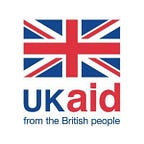A world where everyone counts
Publishing the DFID Data Disaggregation Action Plan
Today I am attending the first UN World Data Forum which is being hosted by Statistics South Africa with support from the Statistics Division of the UN Department of Economic and Social Affairs. We are using the first World Data Forum as an opportunity to publish the DFID Data Disaggregation Action Plan.
Data and the Global Goals
In September 2015, world leaders adopted the Global Goals which frame development for the next fifteen years. The Global Goals focus on equity and universality in order to ensure that the furthest behind are reached and that no one is left behind. In order to track progress at the national, regional and global level, a large amount of high quality, timely and disaggregated data is needed. Low Income Countries must be supported to build their statistical capacity in order to increase the availability of good data. While it may be complex and costly, it will not be possible to realise and evidence delivery of the Global Goals without significant improvements in the gathering, analysis and use of disaggregated data.
Our work on data disaggregation
On 3 May 2016 DFID hosted a conference on age data disaggregation together with partners from Civil Society and the United Nations. This action plan is a direct response to that day, and addresses data disaggregation more widely than age alone. Achieving full disaggregation across all social groups as outlined in the Global Goals will be a complex and long term undertaking. This action plan sets the foundation for immediate short term change now within DFID, and work across the global development system to get tools, methods and standards in place to support a longer term change so we can collectively achieve the Global Goals for everyone everywhere.
What does success look like?
We asked what success would look like. The result is a vision for the way that we interact with disaggregated data in 2030 and how it guides our work and our decision making. Our Data Disaggregation Action Plan clearly sets out the steps we will take across four domains to ensure success:
- Partnering for data — In 2030 all DFID suppliers gather, report and use high quality disaggregated data
- Influencing — In 2030 the UK is the recognised global leader on data for development.
- Capacity building — In 2030 partner government National Statistics Offices, suppliers and multilaterals have the technical and resource capacity to gather, report and use high quality disaggregated data
- Management information, research, analysis and reporting — In 2030 there is high quality standardised disaggregated data to evidence that no social group has been left behind. All data is open source and everyone has access.
Trailblazing country programmes
The promise to ensure that the Global Goals Leave No One Behind applies to all of our work, but some of our country programmes are well placed to lead on this agenda. Acting as a source of learning and inspiration for the wider organisation, these trailblazer countries are provided with additional support and guidance and will go on to inform practice across DFID. Our country programmes in Bangladesh, Nepal, Rwanda and Zimbabwe will act as a beacon across DFID, exploring and showing others what good practice looks like.
What comes next?
We will review progress and will conduct a detailed stocktake in 2020. Once we have successfully delivered the actions in this plan we will consider whether it is possible to raise our level of ambition further. We remain committed to the goal of full data disaggregation for all social groups under the Global Goals but our approach will be iterative and we will progressively realise our ambitions on data disaggregation while working to bring stakeholders and suppliers along with us on each step of our journey.
Kim Bradford Smith, Department for International Development
- Kim Bradford Smith is the Senior Statistician and Evidence Lead at the Department for International Development. Kim leads a team of cross cutting advisers from Economists to Evaluation Specialists who are at the coal face, delivering on the promise to leave no one behind under the Global Goals in the Department for International Development.
- Follow Kim on Twitter @KimBradfordSmit.
- Download a copy of our action plan by clicking on the link below.
More articles in this series
- A world where everyone counts: Publishing the DFID Data Disaggregation Action Plan
- Our Experience of Using Disability Disaggregated Data: Sightsavers International Share Learning
- Our Experience of Using Age and Sex Disaggregated Data: HelpAge International Share Learning
- World Data Forum 2017: Three Simple Ways to Join In
- A Conversation on Data Disaggregation: An Inclusive Revolution
- Help Us Improve Age Disaggregated Data
- Help Us Improve Age Disaggrgated Data: Aging
- Help Us Improve Age Disaggrgated Data: Youth
- Help Us Improve Disaggregated Data: Technical Discussion paper
- A Human Rights Based Approach to Data
